Game Developers are the new version of the old trope: a starry-eyed aspiring actor who goes to Los Angeles, dreaming of becoming a Hollywood star, but faces the harsh reality of the industry instead. Fortunately, in the game industry, that harsh reality is not extreme, like sleeping with an influential producer or becoming a Starbucks waitress. In the game industry, the harsh reality is much less dramatic and far more mundane: crunch, communication problems, having years of work yeeted and deleted by a greedy publisher who’s obliged to trends and algorithms and knows the price of everything but the value of nothing. You know, that kind of stuff.
The game industry is basically Capitalism on crack, and all the best and worst qualities of Capitalism are on full display here. The good thing is that you can make a lot of money and clout through this industry if you’re on a roll. But once the roll ends, you’re bound to have your heart broken and livelihood threatened one way or another.
This system applies to everyone, from top to bottom. There are so many horror stories about popular Game Developers getting axed in the middle of projects, mass layoffs, successful studios getting shut down just because of one mistake, or even changing trends. There is no job security in this industry, and everything is purely determined by an ever-changing market. If you’re the kind of person who grows fond of people they work with, this will be a tough industry to be in. Everything is changing all the time.
In this blog post, we’ll go through 10 challenges you need to be prepared for if you want to enter the game industry. This post is inspired by a book called “Blood, Sweat, and Pixels” by Jason Schrier and contains examples from it. This book explains the highs and lows of the game industry through 10 unrelated articles about the development of 10 different games. Some of this stuff might sound too negative and discouraging but remember: every workplace has its own set of particular challenges that are not always present; you simply need to be prepared for them. Our goal here is to help you prepare for what this industry might throw your way.
Crunch
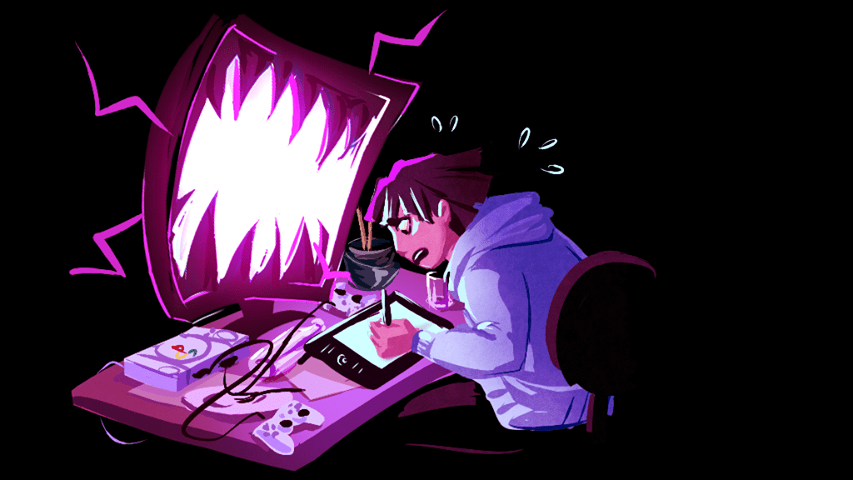
Crunch is by far the most infamous problem the game industry suffers from. Games are very hard and complicated to make, and as the AAA industry keeps getting bigger and bigger, the workload required to make games like God of War or Uncharted becomes more insane.
Some game developers are known to work 80 to 100 hours a week or stay in the office till 2 or 3 A.M. – or both – to reach tight deadlines. What makes this more tragic is that the crunch goes unpaid in many companies. Schrier mentions how CD Projekt Red had to pay the employees who worked overtime on the Witcher 3 because Polish law made it mandatory, but then again, the payment was lower than average compared to US companies. So there’s a bit of a legal gray area here, but complaints about low payment and high work time are common in the industry.
Crunch reaches the height of its intensity before important deadlines, like making an E3 Demo or releasing the game. One of my favorite anecdotes regarding crunch is about Bruce Straley, the co-director of Uncharted 4, who rented a second apartment near Naughty Dog’s office, to stay there during the week. He only went to his apartment during the weekends. He had to be in the studio so often and for so long that it was simply not worth driving back home.
With the advent of AI, many jobs are going to be lost in the game industry and that’s terrible. Still, I’m hopeful that AI is going to decrease the necessity of crunch for those who manage to stay in the industry because crunch is mainly caused by a large amount of grunt work in fields like art-making and coding and the constant reiteration and revision that are an inseparable part of the game development process. AI can take care of a lot of that grunt work and leave humans to take care of the more creative aspects of game development.
Communication Problems
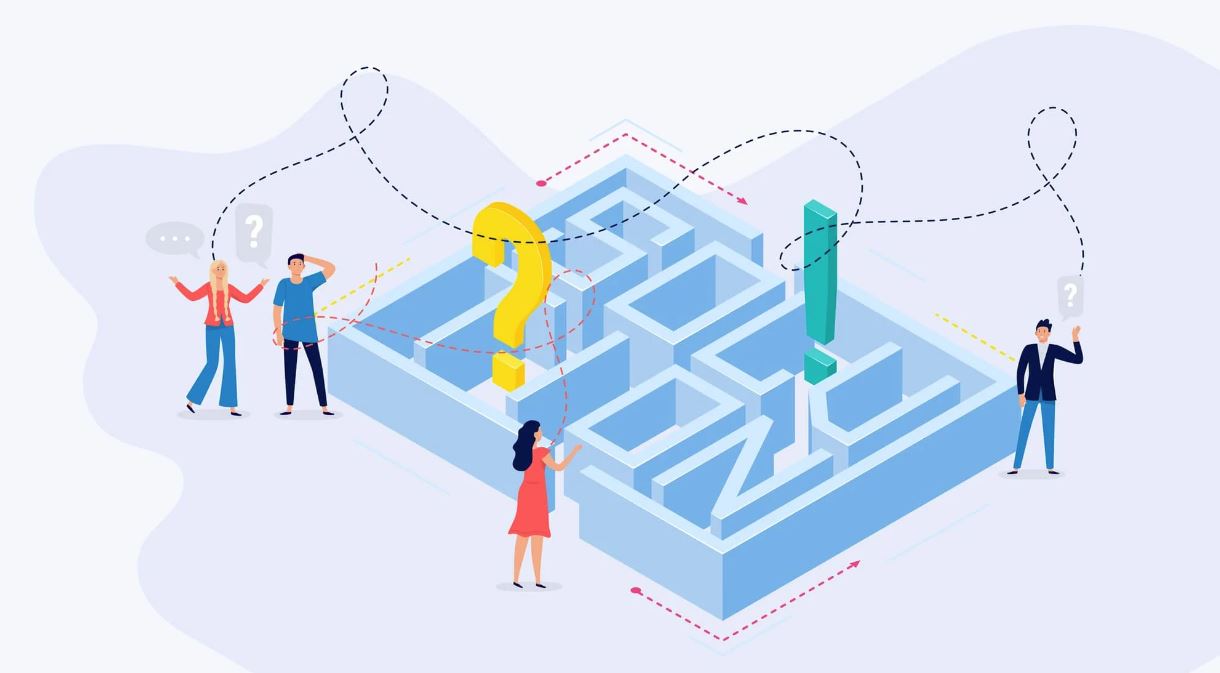

Communication has always been an issue in any big creative project, from architecture to movie-making, and video games are no exception.
Some video games have dozens of game developers working in different departments; some bigger ones have hundreds. If the project doesn’t have a leader with a clear vision, these departments will have a hard time working towards the same goal. If you have ever played a game that has an uneven quality in different areas or has gameplay elements that don’t make sense in the larger context, you can bet that it was caused by communication issues.
It doesn’t help that the kind of people the game industry attracts are usually either shy introverted artistic types or insensitive “facts don’t care about your feelings” technical types, and these people can really alienate each other and exacerbate the communication problem through hidden contempt and grudges. If you want to get into game development, it’s good to work on your soft skills so that you won’t start secretly hating your colleagues after a while. Just like any other field, human emotions (like jealousy, contempt, prejudice, grudges, etc.) can get in the way of good communication and the presence of charismatic, empathic and understanding people who can keep people together can be a huge advantage for a project.
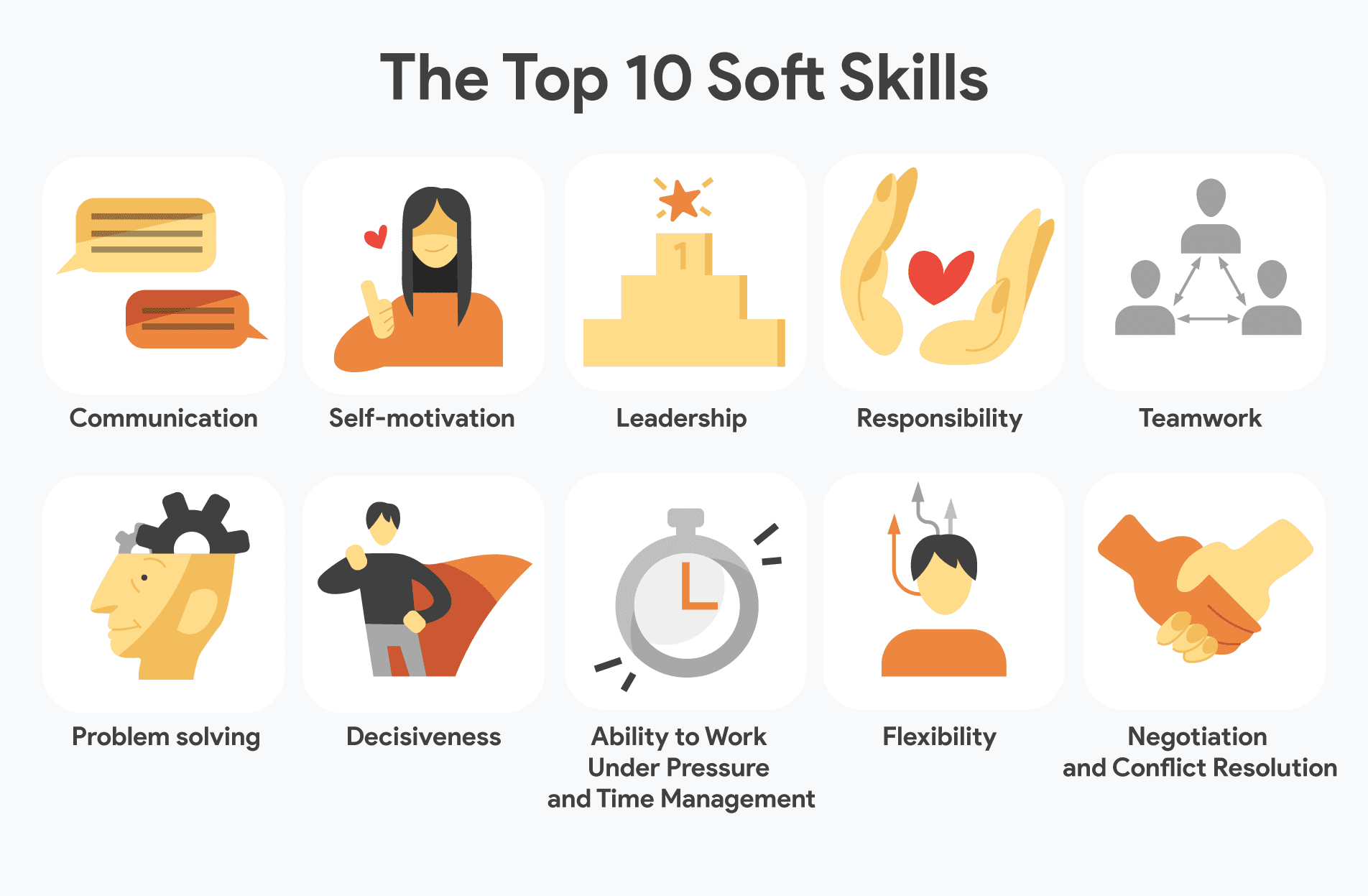

In the chapter about the development of Destiny, Schrier describes how communication problems between the large number of employees who worked on the game caused disaster after disaster in the production of the game. By the end of the production, many of Bungie’s old and popular members left the studio on a rather sour note because the communication was so bad that it was assumed they wanted to sabotage the project.
Having Your Work Thrown Away Mercilessly
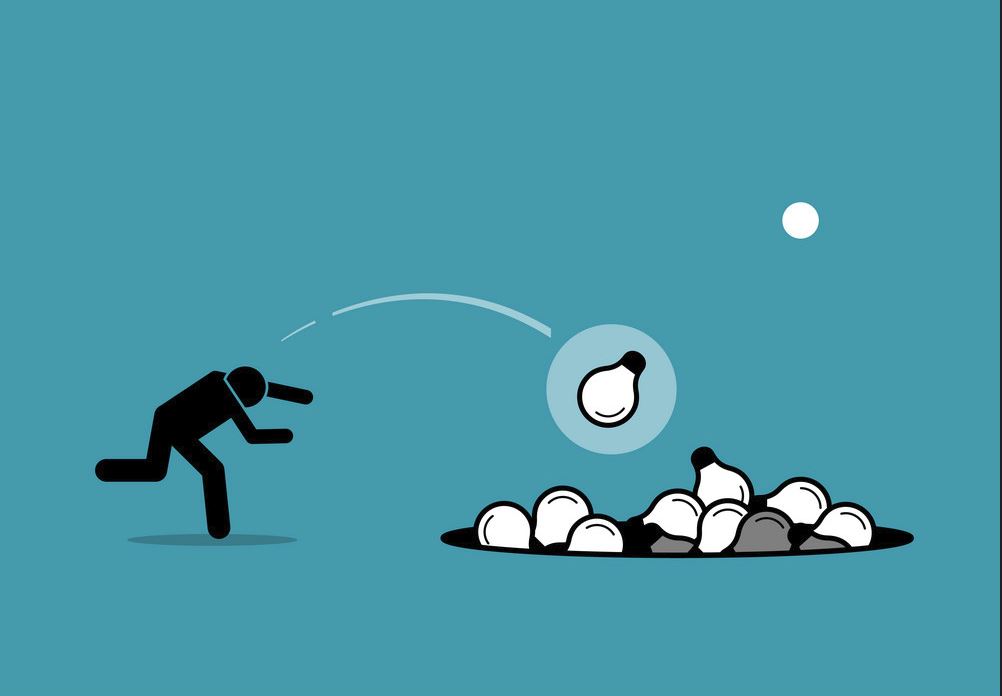

The video game industry is the graveyard of dead ideas. For every game that is made, there are ten others that will never see the light of day. Of course, this is not necessarily a bad thing. After all, not every idea is good, but it can be tough if you’re the kind of person who has an emotional attachment to what they make. It’s possible your work and your ideas may be reiterated and revised so much you would barely recognize it.
The thing is, this decision is not always based on merit and quality. Sometimes it’s just based on shallow marketing evaluation. For example, before Halo Wars was Halo Wars, it was an RTS with an original setting. Graeme Devine spent a long time passionately designing a world and a story for this game until one day, Microsoft, the parent company of Ensemble studios, came and said: This RTS has to be based on the world of Halo. End of story. The funny thing is that Bungie also hated this decision because they didn’t want outsiders to meddle with their fictional world. So imagine the kind of position Devine found himself in: not only his original creation was thrown away, but now he was seen as an intruder by the people whose creative work he had to use.
Another example is how people who worked on Star Wars 1313 – the highly promising game its cancellation shocked the industry – spent a long time designing a hero and a story for their game until one day, George Lucas came and said the main character had to be Boba Fett. No questions asked. This unnecessary decision forced them to change a lot about gameplay mechanics, level design, the story (that was revised 5 times), etc.
As you can see, creative work in the game industry is cheap unless it finds its way to the final game. And ironically, good ideas get thrown away in favor of bad ones just because of some marketing decisions that might even seem stupid to you, but you have no choice but to suck it up.
Unpredictability


Game industry is very volatile. Games constantly get delayed, studios suddenly go through a change of leadership and lay off a lot of employees, popular studios go down under just because the last game they made was overshadowed by a passing fad and didn’t sell well, Studios that no one knew about suddenly become trendsetters and change all the assumptions you had about good game design, a new technology or engine gets introduced that completely changes how games are made and makes a lot of your past knowledge and skill irrelevant.
To survive this industry, you really need to be an open-minded and flexible person. You need to understand that you cannot rely upon any plans, predictions or assumptions. Keep up with recent technological and cultural shifts, and stop thinking too far ahead. Even If you do, don’t be too attached to your futuristic assumptions. In early 2012, Obsidian Studios was working on a secret RPG that was supposed to be released as a launch title for Xbox One. Things didn’t go well, and the game got canceled. When the news was announced to the studio members, an engineer was hired just the day before to work on the game. He lost his gig just one day after getting it. That’s the level of unpredictability we’re talking about.
As Bioware’s Matt Goldman said, game development is like being on the “knife’s edge of chaos.” You either embrace this chaos or get drowned in it.
Financing


I love the opening line to the first chapter of the book:
The most important question in video game development has nothing to do with making video games. It’s a simple question that has stymied artists for centuries and put an end to countless creative endeavors: How are we going to pay for this thing?
This quote says it all. No matter how good a game studio is, or how well a game sells, there’s no guarantee you’ll find a financier for your next game. There are so many cases of highly talented developers with shining resumes struggling to get any publisher interested in what they have to offer. It’s nothing personal. It’s just that the market has so many ups and downs.
Back in the early 2010s, a lot of publishers were afraid to invest in any new games because a lot of market analysts predicted that the next generation of consoles is going to fail and the future lies in the hands of mobile/iPhone gaming. They were wrong, but the situation was so bad that well-respected companies like Double Fine and Obsidian had to resort to crowdfunding.
As a low-level developer, it’s not your job to find financiers for the company’s game. Still, the difficulty of finding such financiers can affect you because you might not have anything to work on.
Dealing with Ego and Office Politics


This is not just about the ego of people, but the ego of corporations too. Of course, a little bit of ego is necessary to get things done, but sometimes, ego on the wrong person and at the wrong time can destroy a company from within.
This is basically what happened to Ensemble studios. When this studio was established, everyone was like family, to the point that they went to each other’s houses every weekend. But once they became successful and were bought by Microsoft, this sense of closeness was replaced by ego and office politics. New members found the old members to be set in their own ways and inflexible. Old members each developed their idea about where the studio should go and formed their own tribes. They were tired of making RTS games, but that’s what the market demanded from them. Everyone was working on their own prototypes, while a game that was being actively developed (Halo Wars) was suffering from being understaffed.
The tale of Ensemble studios is a tragic one and an important cautionary tale because they were not closed down due to their failure. The last game they released before Microsoft decided to close them down was a hugely successful game: Age of Empires 3. They were closed down because they simply could not work together anymore due to how egoistic everyone was. They refused to help each other out, formed tribes inside the studio and wasted valuable resources on developing prototypes for multiple projects that could not be made realistically. In the end, Microsoft decided to shut them down long before they finished their last game, Halo Wars.
Dealing with Highly Technical Problems


This one is pretty self explanatory. Game development is a highly complicated process that requires a lot of intelligence and knowledge. Assuming that you’re good at your job, this shouldn’t be a problem – that’s why you were hired in the first place, right? – but sometimes, things don’t go as smoothly as you hoped.
For example, when Bioware was making Dragon Age: Inquisition, they decided to use the “Frostbite” engine, the engine DICE developed for Battlefield games. It turned out making a role-playing game with an engine specifically designed for FPS games was not the best idea because they faced so many technical difficulties working with it. They basically had to make some part of the engine from the ground up to accommodate their game.
Sometimes, due to a lack of foresight or perfectionism, companies can make decisions that could put a huge technical load on your back. You need to be prepared for that.
Bugs and Playtesting
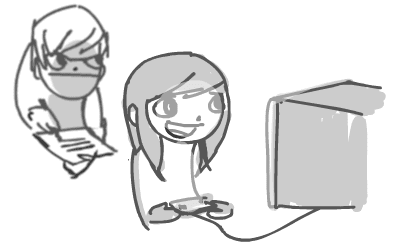

There are two kinds of technical problems: 1. those that require brain power 2. those that require patience. Dealing with bugs is definitely the latter.
In order to find bugs in games, not only you need to play the game dozens of times from start to finish, but you also need to do all kinds of wacky stuff to detect them, because bugs could be triggered in the most random way. For example, there’s a funny anecdote in the book about how a Bioware employee became aware of one of the bugs in the game. His 9-year-old son liked to get off and get on the horse constantly. They realized doing this would cause the player’s companion’s equipment to disappear in one section of the game, resulting in the high-level character of the developer’s son being killed by low-level spiders.
If people ever jokingly tell you that “you’re a game developer. It must be fun to play games and get paid for it”, just tell them how bugs are found in games. You have to play the same game dozens of times in the most anti-fun way possible. Hopefully, they will stop making that comment afterward.
Being Laid Off Unexpectedly


This is an extension of the unpredictability of the game industry, but since it’s such a dangerous and hurtful thing to happen, it deserves its own entry.
Being laid off might feel like a personal attack initially, and it can be hurtful. More than that, if you have grown to like your coworkers, it can make you miss them. But you need to realize that most of the time, being laid off is nothing personal unless your performance is noticeably worse than your colleagues. This industry is chaotic and there’s no other way around it. But the good news is that if you are good, another studio will hire you quickly. So this volatility is both a blessing and a curse; it makes getting laid off and hired back equally easy.
It’s also worth mentioning that this aspect of the game industry is more prominent in the West. In Japan, there’s this culture of corporate fidelity which encourages people to stay faithful to a company and if possible, stay there for the rest of their working life. If you follow the career of Japanese game developers, you see it’s more likely for them to stay in one studio and work with one publisher for longer periods of time.
Alienation


The Marxists know about this one. Marx’s theory of Alienation goes something like this (taken from Simple English Wikipedia):
In Marxism, alienation is a feeling that people have when they don’t feel connected to the society around them and their work.
According to Marx, there are four types of alienation in a capitalist society:
- Alienation from the product of a person’s work
- Alienation from the process of work
- Alienation from others
- Alienation from self
Because of alienation, people have no control over their lives or the things they make. Instead, the products of their labor are exchanged for wages in order to survive.
While this theory is not discussed in the book, I strongly felt its shadow while reading it. Imagining all those people who were under the constant threat of being laid off, having their work thrown away, being cut off from beloved colleagues, being overworked, underpaid, working for a vision that they didn’t even understand sometimes… All of these can be so alienating.
One of the passages that really emboldened the feeling of alienation was the one in the chapter about Destiny:
Perhaps the biggest problem was that Destiny still didn’t have much in the way of an identity among Bungie’s staff. “If you were to go to Bungie and ask people what they thought Destiny was,” said one former employee, “half the studio would probably say it’s a Halo shooter, and the other half would say it’s World of Warcraft.” The studio was growing rapidly, which made communication even more difficult. By 2013 there were hundreds of people working on Destiny in Bungie’s unreasonably dark Bellevue offices. Not everyone played the game every day, and few of them could visualize what Destiny would ultimately look like, which led to, as a different former employee described it, “a bunch of great ideas that are all siloed off, and none of them actually complementing each other.” Journalists had left the February event wondering exactly how Destiny would work. At Bungie, people were asking the same question.
Imagine all those game developers in that situation: they don’t know what kind of game they are making, they have problems communicating with other departments, they’re watching old celebrated Bungie members leave one by one, and worst of all, they’re working in a physical environment that is inexplicably dark, as if fate itself is determined to make them depressed. And all for the sake of creating entertainment.
Forget about payments and building resumes. Can anybody feel happy and fulfilled working in this condition? If I were in that condition, I would feel alienated af.
And I think that’s perhaps the deepest challenge you can face as a Game Developer. All of the problems above are tangible problems that you can overcome through practical solutions, but this feeling of alienation that the game industry (or more precisely, the AAA industry) constantly reproduces for its employees doesn’t have an easy solution. It’s too deep and cerebral.
At the end of the day, Blood, Sweat, and Pixels seemed like a strange criticism of Capitalism. I say strange because Schrier’s tone throughout the book is descriptive and objective, not critical. But that’s what makes it so effective. Sometimes the best way to criticize something is not to actually criticize it but to describe it. When you read about how some of the game developers and creative types are treated in the industry, it just leaves a bad taste in your mouth.
These people are precious. It’s not fair to watch them being chewed in and spat out like this. I don’t want this stuff to happen to anyone, but I know it will. That’s just how the system works. By writing this, I hope I have at least helped someone not to be taken by surprise.
To read our previous blog about Difficulty Setting in Games, click here.

